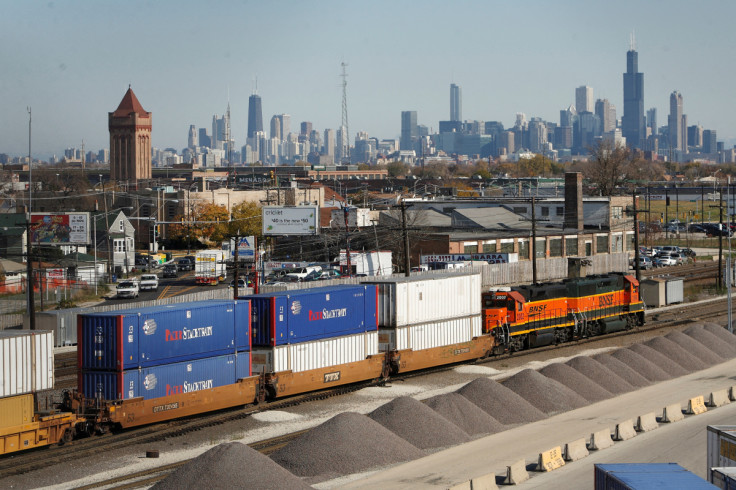
Chicago has started evicting some migrants from its shelters, a measure that had been postponed three times because of extreme winter, staffing concern and backlash from advocates and elected officials, NBC News reported on Tuesday.
City authorities said that nearly three dozen people were eligible for eviction on Sunday, but most of them ended up receiving extensions because of different extension possibilities, including enrollment in public benefits, pregnancy or infant care, medical care, medical isolation and quarantine, as well as having families with children under 18 years of age. Thousands of families in these conditions have already been given extensions.
Those who are evicted have been redirected to the designated "landing zone," where they can reapply for a bed.
Chicago authorities said on Friday that over 2,000 people would be evicted from current shelters by the end of April. There are currently more than 11,000 migrants staying in city and state-run shelters, down from almost 15,000 in late December, according to the Chicago Tribune.
Over 37,000 have made it to the city since mid-2022, when Texas Governor Greg Abbott began his "Lone Star" operation, which has been sending people to cities across the country, mainly New York, Chicago and Denver.
The decision also comes in the middle of a measles outbreak, with authorities reporting four cases this month. Health authorities have been screening shelter residents and administering hundreds of vaccines. Those unvaccinated or whose status was not certain were instructed to quarantine for 21 days. Some are being relocated to alternative sites depending on their immunity status and quarantine requirements.
As the flow of migrants reaching the city continues at a sustained pace, the city has sought to limit shelter stays to 60 days, requiring them to find housing or apply for other shelters when the period ends.
Mayor Brandon Johnson's administration said the policy seeks to "decompress" some shelters, particularly those housing single migrants. Johnson said Friday that "by encouraging resettlement while also providing case-specific extensions with a focus on health and safety, we are advancing a pathway to stability and self-sufficiency."

"Individuals who are in the process of securing housing or outmigration, if there are other extenuating circumstances around their health or pregnancy. There are a number of people who won't be subject because they fall under that particular dimension of the policy," Johnson added.
Many City Council members have opposed the decision, with 18 signing a letter urging Johnson to not go ahead with it and saying that migrants would be deprived from much-needed stability.
© 2024 Latin Times. All rights reserved. Do not reproduce without permission.







